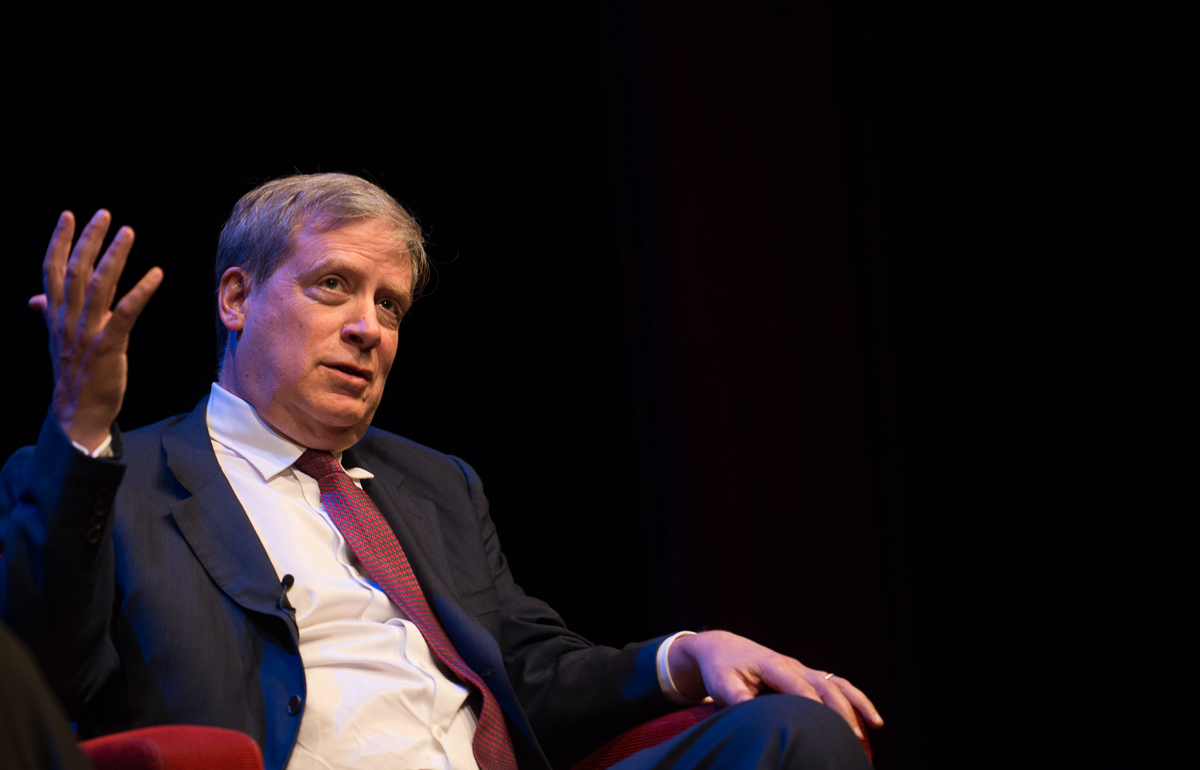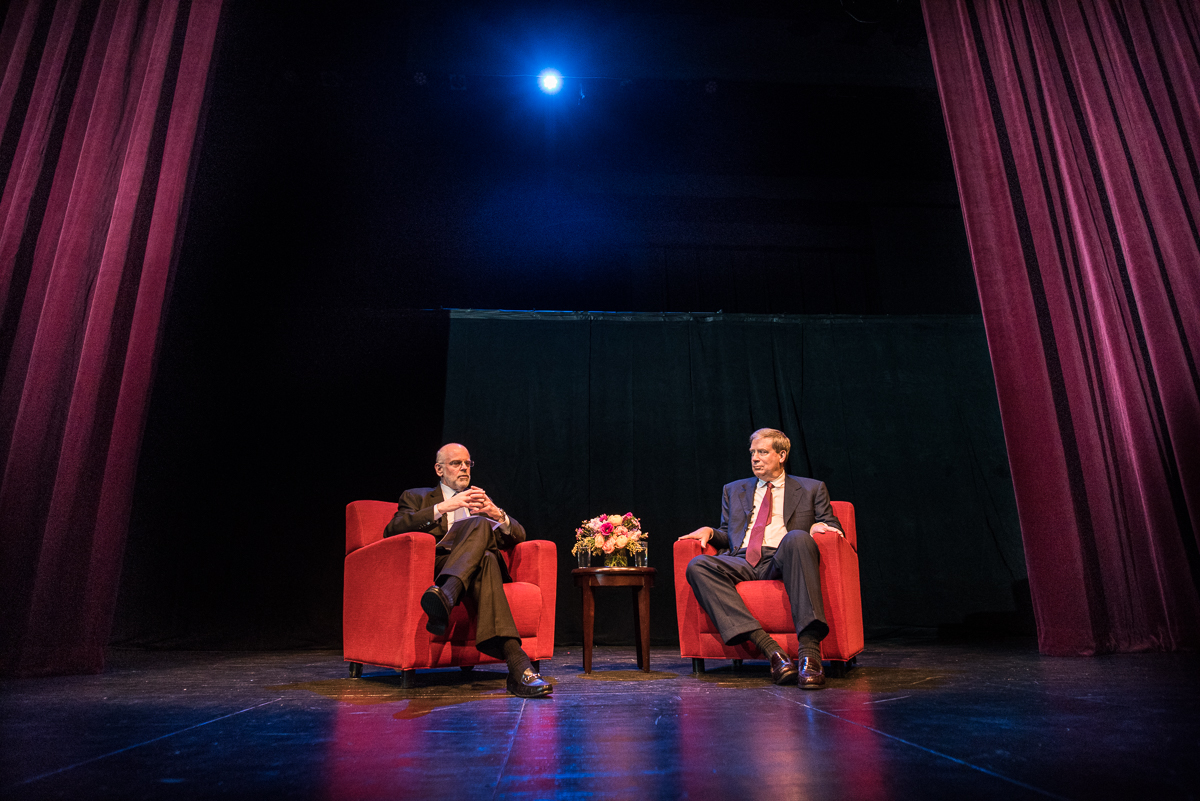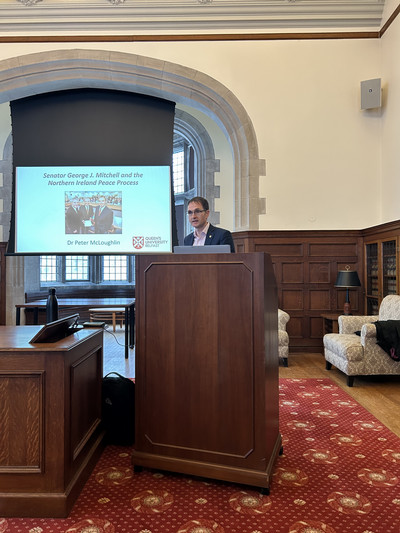Stanley Druckenmiller '75, H'07 on the Economy, Politics and Education
By Tom PorterLegendary investor and philanthropist Stanley Druckenmiller ’75, H’07 presented An Investor’s Perspective on Trump, Trade, and Global Populism, a Q&A event facilitated by President Clayton Rose February 8, 2017, in Pickard Theater, Memorial Hall.
President Rose introduced Druckenmiller as someone “universally regarded as one of the great money managers of today,” and “whose record in finance is only matched by his incredible generosity and record in philanthropy.”

Reflecting on his years at Bowdoin, Druckenmiller commented on how the College opened his eyes and his mind: “Bowdoin taught he how to think,” he said.
Delving into the topic of the night, Druckenmiller said through structural tax reform, “The Trump administration has the opportunity to raise the long-term growth rate of this country,” adding that it’s unclear at this point whether the administration will seize the opportunity.
He warned against what he called the “sugar high” of stimulus programs and tax cuts, arguing such measures do not help the economy in the long run.
Also key to reforming the economy, said Druckenmiller, is the need to bring healthcare costs under control. He pointed out that the US spends about 19 percent of GDP on healthcare, while the other G7 countries spend about 11 percent “and have better outcomes” and described the situation as a “ticking time bomb.”
Druckemiller said it doesn’t really matter how the problem is solved, whether it’s through a free market solution, which he said he actually favors, or the single payer system.
“Frankly I don’t really care,” he said, “I don’t have a monopoly on the truth, but we’ve got to get that 19 percent down somehow.”
A student asked what should be done to address America’s problems of economic and income inequality. Druckenmiller said the long-term solution involves major educational reform, since the country’s education system limits opportunity for many children. There are “whole sectors of society that don’t even have a shot, and I’m not saying everybody is guaranteed success in this country, but they are guaranteed a shot,” he said.
“Money is not the answer,” Druckenmiller said, as he shared more thoughts about education reform. “The thing we need in our education system is competition. Until we start having competition, either through charter [schools] or some other form, and break this monopoly, I’m pretty pessimistic on the public school system.”

Asked about his view on the Trump administration’s intent to roll back much of the Dodd-Frank Act, put in place to strengthen financial regulation in the wake of the 2008 crisis, Druckenmiller agreed that parts of Dodd-Frank should be repealed, saying there has been a “huge overshoot” in financial regulation since the crisis, with many companies now having oversized compliance departments.
“It’s actually inhibited lending and been bad for the country,” he said. He expressed a desire for much of Dodd-Frank to be eliminated—but not all of it—because some regulations are necessary. He also pointed out that regulations were already in place when the financial crisis of 2008 unfolded, but were not followed.
Another student wanted to know Druckenmiller’s thoughts on what skills will be the most valuable in twenty years, “or to put it another way,” he added, “if I want to become rich, what classes should I sign up for next semester?” Druckenmiller’s response was that a desire to become rich, on its own, is not enough. If your goal is purely to become rich, he said, there’s a good chance you will become neither rich nor happy.
“In my industry, if you’re not passionate about what you’re doing, you’re going to lose money,” and this, he continued, is true in just about every business. Druckenmiller’s advice to everyone: “Follow your passion.”



